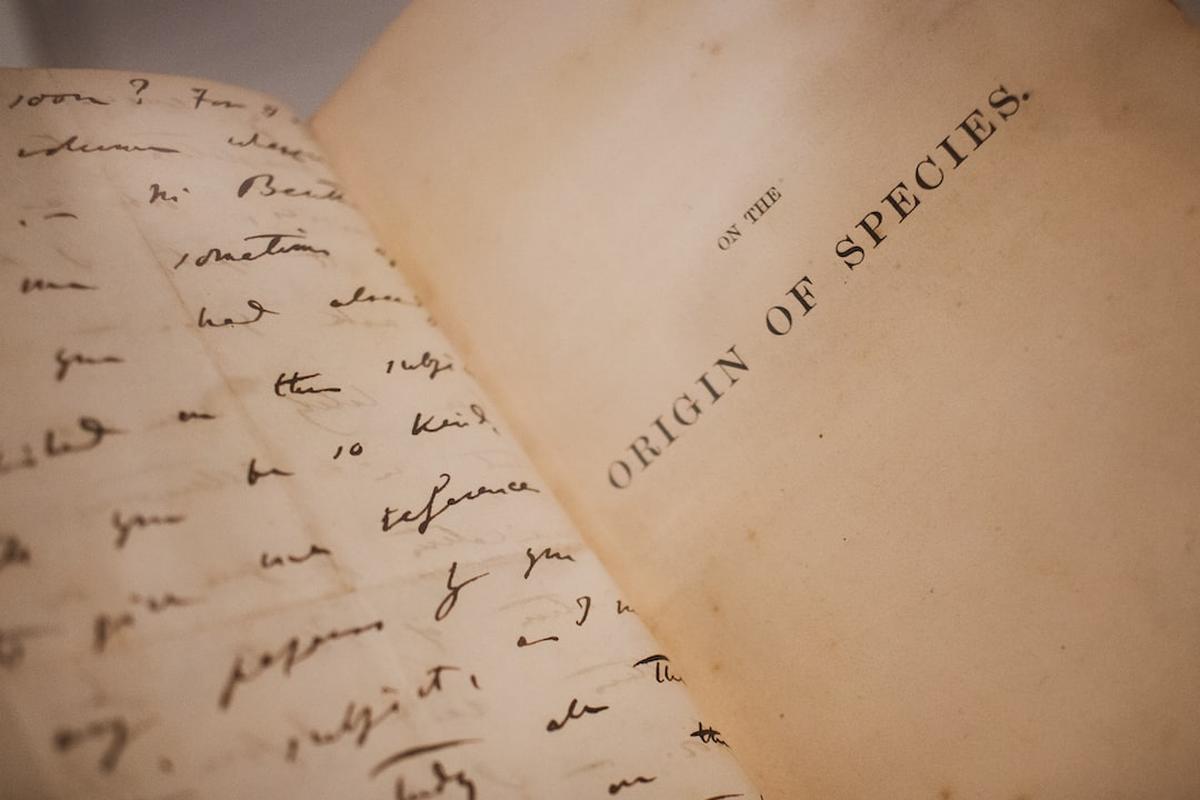The origins of life have been a subject of debate and inquiry for centuries. One of the most prominent theories is creationism, which posits that a divine being or beings are responsible for the creation of the universe and all life within it. However, this article aims to delve into the antithesis of creationism: evolution. We will explore the theory of evolution, its scientific underpinnings, and its philosophical implications. We will also examine how it contrasts with creationism and whether the two can coexist.
Defining Evolution
Evolution, in the simplest terms, is the process by which different kinds of living organisms are thought to have developed and diversified from earlier forms during the history of the earth. The theory of evolution is primarily associated with Charles Darwin, who proposed that all species of organisms arise and develop through the natural selection of small, inherited variations that increase the individual’s ability to compete, survive, and reproduce.
Evolution vs Creationism: A Comparative Analysis
The origins of life as viewed through the lens of evolution and creationism present starkly different narratives. Evolution posits that life originated from simple organic compounds, which over billions of years, evolved into the diverse array of life forms we see today. On the other hand, creationism holds that a divine being created all life in its present form, negating the possibility of evolution. When it comes to human creation, evolution proposes that humans evolved from ape-like ancestors over millions of years. In contrast, creationism asserts that humans were created in their current form by a divine entity. The concept of final creation is also vastly different in both views. Evolution sees life as a continuous process of change and adaptation, with no predetermined end. Conversely, some creationist beliefs propose a final creation, where life forms reach their ultimate, unchanging state.
The Science of Evolution
There is a plethora of evidence supporting the theory of evolution. Fossil records provide a chronological account of evolution, showing the progression of life forms over time. Genetic evidence further supports this, as similarities in DNA across species suggest a common ancestor. Additionally, observable evolutionary changes, such as antibiotic resistance in bacteria, demonstrate evolution in action. Evolutionary biology encompasses key concepts and principles that explain these phenomena. These include natural selection, genetic drift, and speciation, among others. These concepts provide a scientific framework for understanding the diversity and complexity of life on Earth.
The Philosophy of Evolution
A common misconception is that evolution equates to atheism. However, evolution is a scientific theory explaining biological processes, not a philosophical stance on the existence of a deity. It describes evolution as a natural process driven by genetic variation and environmental pressures, not by any predetermined plan or purpose. The question of purpose is often brought up in discussions about evolution. While evolution does not propose a specific purpose for life, it does not negate the possibility of individuals or species creating their own purpose.
Evolution and Religion: Can They Coexist?
The perceived conflict between evolution and religion has been a point of contention for many. However, some propose a middle ground in the form of evolutionary creationism, which suggests that God used evolution as a tool for creation. Various religious perspectives also accommodate evolution, viewing it as a mechanism through which the divine operates.
Criticisms and Controversies
Despite the wealth of evidence supporting evolution, it has faced criticisms and controversies. Critics often question the gaps in the fossil record or the inability to observe large-scale evolutionary changes directly. The teaching of evolution in schools has also been a controversial issue, with some advocating for the inclusion of creationist beliefs in the curriculum.
Evolution Education
The teaching of evolution in schools is crucial for a comprehensive understanding of biology. It provides a framework for understanding the interconnectedness of life and the processes that drive biological diversity. The approach to evolution education varies worldwide, reflecting cultural, religious, and political differences.
Conclusion
In conclusion, understanding evolution as the antithesis of creationism provides a comprehensive view of the origins and development of life. It underscores the importance of scientific inquiry and critical thinking in understanding our world and our place in it. Despite the controversies and criticisms, the theory of evolution remains a cornerstone of modern biology, providing valuable insights into the complexity and diversity of life.
Frequently Asked Questions
What is the main difference between evolution and creationism?
The main difference lies in their explanation of life’s origins. Evolution posits that life originated from simple organic compounds and evolved over billions of years, while creationism asserts that a divine being created all life in its present form.
Is evolution a proven fact?
Evolution is a well-substantiated scientific theory supported by a wealth of evidence from various fields, including paleontology, genetics, and comparative anatomy. While no scientific theory can be proven beyond all doubt, the evidence supporting evolution is overwhelming.
Can you believe in both evolution and religion?
Yes, many people reconcile their religious beliefs with acceptance of evolution. Some view evolution as a tool used by God in the process of creation, while others see no conflict between a belief in God and the acceptance of evolution as a scientific theory.
Why is it important to teach evolution in schools?
Understanding evolution is fundamental to understanding biology. It provides a framework for understanding the interconnectedness of life and the processes that drive biological diversity.
What are some criticisms of evolution?
Critics often question the gaps in the fossil record or the inability to observe large-scale evolutionary changes directly. Some also argue that evolution cannot account for the complexity of life.
Does evolution disprove the existence of God?
No, evolution is a scientific theory that explains the diversity and complexity of life. It does not make claims about the existence or non-existence of a deity.
References:
- Darwin, C. (1859). On the Origin of Species by Means of Natural Selection, or the Preservation of Favoured Races in the Struggle for Life. London: John Murray.
- Futuyma, D. J. (2013). Evolution. Sunderland, MSinauer Associates.
- Miller, K. R. (1999). Finding Darwin’s God: A Scientist’s Search for Common Ground Between God and Evolution. New York: HarperCollins.
- National Academy of Sciences. (2008). Science, Evolution, and Creationism. Washington, DC: The National Academies Press.
- Scott, E. C. (2004). Evolution vs. Creationism: An Introduction. Berkeley, CUniversity of California Press.




